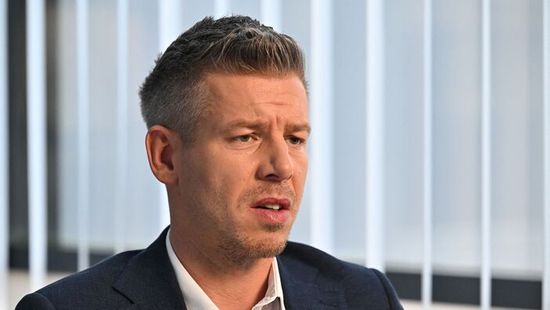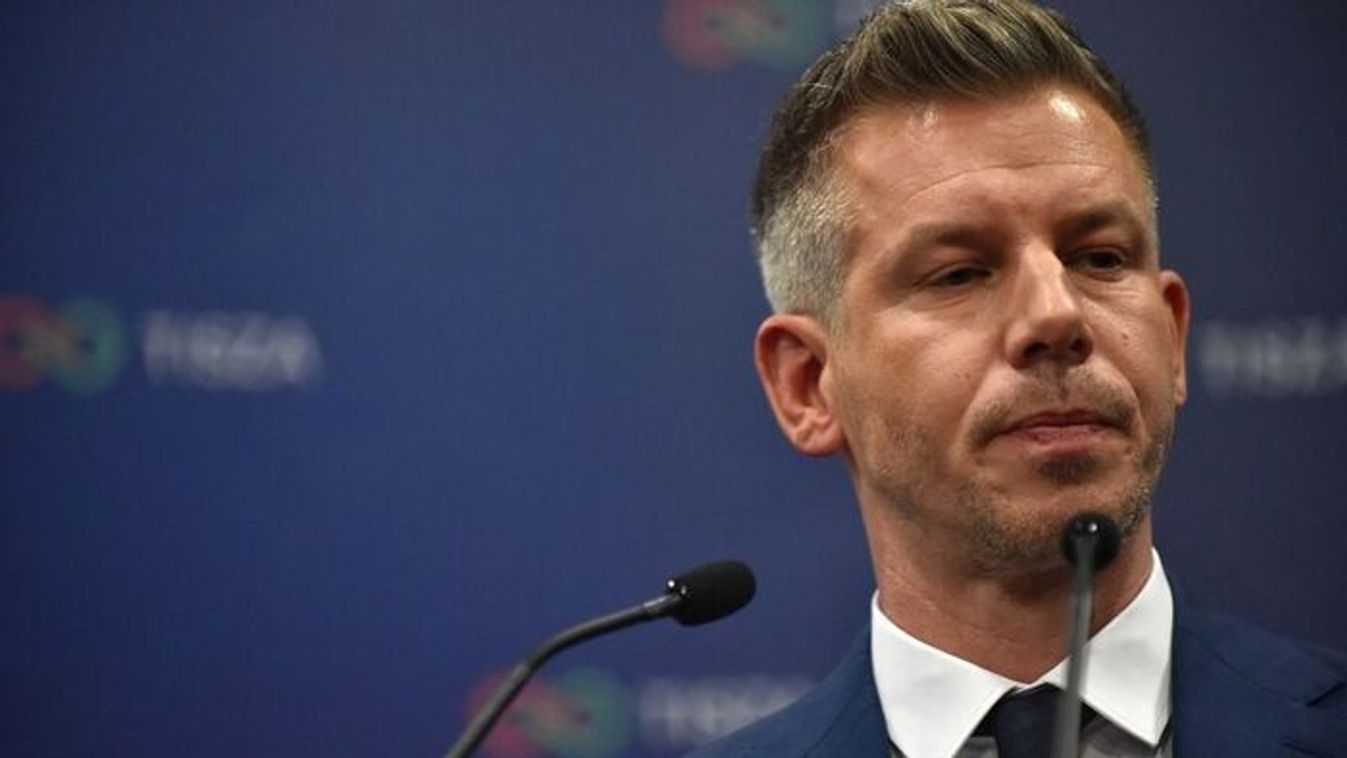Kellemetlen: elhangzott az eddigi legfontosabb mondat Magyar Péter rejtélyes videójáról

Bár a drogos bulibotrány nagyon zavaros, az biztos: Magyar Péter zsarolható – mutatott rá az elemző.

On Tuesday, March 19, the Helsinki Commission of the United States Congress held a hearing on Hungary, entitled “The Trajectory of Democracy – Why Hungary Matters.” Among those testifying, only one was from Hungary: Dr. József Szájer, Member of the European Parliament from Fidesz. The Globe reached Dr. Szájer by phone just after the hearing. The following is our interview.
What was the purpose of the hearing? Why did you travel to Washington, D. C.?
We were invited by the US Helsinki Commission to this hearing about Hungary. Unfortunately the level of interest was rather weak, only one US senator [Senator Ben Cardin (D) from Maryland – the editor] who is the chairman and no members of Congress showed up. For us, however, it was an important event, since this was the first time our voice could be heard in response to the series of attacks going on for weeks now. The hearing was a step forward despite even the imbalance of the panel, where the other three witnesses were heavily critical of the Hungarian situation. The verdict was already decided before the trial, but at least Gergely Gulyás and I had the chance to make our contributions.

Were you expecting a greater attendance?
We had a strong attendance in the hearing room, but the members of the congressional representatives [the members of the committee – the editor] did not show up. This was an event for the public. The chairman sometimes wasn’t even sure which country the hearing was about. He mentioned Austria a couple of times instead of Hungary. But, we trust, and never give up hope that the western world operates differently than the eastern world used to operate. In the West, a person’s arguments are listened to before he is judged.
Were you able to get your arguments across?
My testimony will be available on the Internet and the hearing was available live via webcast, so I believe our arguments reached quite a lot of people. The chairman pointed out that it would be reasonable to accept my offer to be available on future occasions to clarify misunderstandings. I believe he showed a positive attitude towards my offer and understood my message.
Did cultural and legal differences make the discussion more difficult? You mentioned the legislation on religious organizations as one example of a misunderstanding due to different regulatory approaches.
Every country is responsible for its own constitutional system, and each one is alone in looking for solutions to problems. In the United States, the legislation on religious organizations was deeply misunderstood, and we have seen how others have helped encourage these misunderstandings. The fourth amendment to the Fundamental Law clarifies that it is every individual’s right to express or practice any religion. But, in the case where the religious community would like to be able to receive state funding, it has to be registered and be recognized. Due to the ruling of the Constitutional Court, we altered the registration procedure so now it provides the possibility to appeal the procedure.
We saw a comparison in the hearing of two, different legal cultures regarding this issue. It is not my responsibility to decide which one is better or worse. The most important thing is that the two cultures cannot be mixed up. If I was able to get this point through, it was a step forward.
Did you see mistakes from other witnesses and were you able to correct them?
I didn’t have the chance to react to the statements of other witnesses, only to respond to questions addressed to me by the Chairman as I was in the first panel. From the second panel [which included Dr. Kim Lane Scheppele from Princeton University, Sylvana Habdank-Kolaczkowska from Freedom House, and Dr. Paul A. Shapiro from the US Holocaust Memorial Museum – the editor], we heard numerous biased, partly or completely untrue remarks. In my testimony I tried to address issues which would show up in the speeches after mine, but the witnesses following me disregarded my remarks. But this is only the beginning of a discussion, and it is a promising development that the discussion has begun.
Have you changed any of your positions as a result of the hearing?
The laws accepted in the past three years are results of careful consideration and parliamentary debate. Hungary has asked for the opinion of the Venice Commission, which is not a standard procedure, even though a country’s Constitution is a part of the country’s sovereign internal affairs and it is not the duty of a country to consult on it. Of course, we have to abide by the international agreements and contracts, but the amendment to the Fundamental Law does not contradict any international contracts. Our opinion will continue to be based on Hungary’s interest and not on biased testimonies or newspaper headlines. But, in case the Venice Commission, as part of a correct procedure and based on facts, finds that some points are to be revised, we are ready to follow their lead.
Senator Cardin kept bringing up ‘concerns.’ Were you able to answer these?
I doubt that a testimony of just a few minutes could succeed in that, given that mine was not the first opinion the chairman has heard. But, it was perhaps successful in emphasizing the basic principle of the Roman Law: “hear the other side” before presenting the verdict.
What did you have in mind when you mentioned ‘double standards’ regarding the EU?
The law on religious organizations for example. Hungary is being attacked because we gave state recognition to 34 churches, while in other, neighboring European countries this number is much less. Some countries even have only one official state church.
Hungary has been criticized because Constitutional Court rulings based on the former Constitution were repealed as the new Fundamental Law came into effect. Critics fail to realize that Poland used the same rule in its own Constitution. In France, there have been rules controlling a political party campaign’s access to the media, but it seems like Hungary cannot introduce a similar law.
The Hungarian government has an ongoing debate with Princeton Professor Kim Lane Scheppele, who suggests that the 2014 Hungarian elections should be monitored by the OSCE.
The Hungarian elections, just like in the past 20 years, will be open and transparent next year as well. We are ready to host any monitoring activity. Scheppele’s statement though, which says the Hungarian electoral law prohibits the presence of foreign observers, is not true.
Paul A. Shapiro, representing the US Holocaust Museum warned about the rise of the Hungarian extreme right in his testimony. What do you think about that?
We hear a number of false and misleading details during his testimony. This is why I emphasized in my testimony that the Hungarian government stands up against anti-Semitism and finds it unacceptable. It is my deeply held conviction that using the accusation of anti-Semitism as a political tool is inaccurate and offensive to the victims. I am personally outraged over the fact that someone, in such a direct way, listing untrue accusations uses his testimony time for anti-government propaganda. I was expecting a more correct approach.
Do you think the same about statements regarding Miklós Horthy’s rehabilitation?
In Hungary there is no rehabilitation of Horthy. I do not know of any ambition in the government of such goal.
Did you meet Senator Cardin or other representatives in person, before the testimony?
We had several meetings with representatives, but we did not meet the senator.
How do you imagine this conversation to be continued?
We will be debating these issues in front of numerous forums, as we have in the past years. We are looking forward to being able to express our opinion and arguments directly regarding Hungary’s affairs, despite that this has rarely been the case in the past.